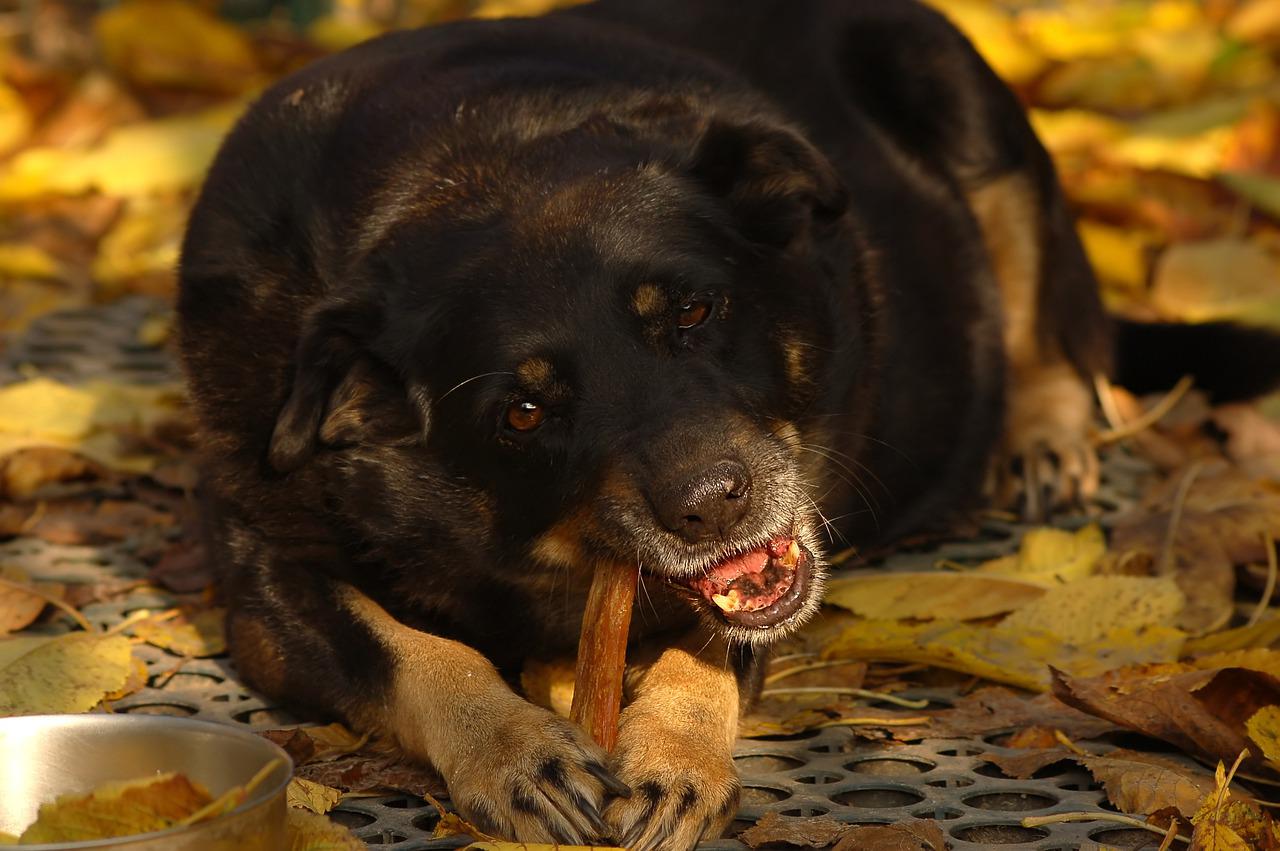Making sure your dog is living a happy, healthy life, is an important part of pet ownership. So it’s important to make yourself aware that according to the PDSA, around 51% of dogs are overweight or obese and that number is growing.
This isn’t great news for obvious reasons, as very few causes of overweight dogs are medical.
In this article we will show you how to tell if your canine companion may be overweight and we share some advice on how to get your pooch back to a healthy weight, where they will be happy and able to live their best lives.
How to tell if your dog is overweight
Every dog is different, just like their humans. Different dogs and breeds will have different shapes and sizes and it can be difficult to tell just from looking whether your dog is overweight or not.
Fortunately, there’s a simple trick you can use to find out if your dog is overweight.
Stand over your dog and run your hands down its body. There should be a thin layer of fat and skin over the ribs and you should be able to clearly feel the ribs.
If you cannot clearly feel the ribs, chances are, your dog is overweight.
Other signs of overweight dogs can be:
- Loss of defined shape
- Needing to loosen the collar
- Getting out of breath faster than before
- Sleeping more than usual
- Not playing with their friends as much or running for so long
If you’re unsure, take your pooch to the vet and have them checked. They are the experts after all!
Risks associated with overweight dogs
Just like with humans, being overweight can cause long term medical challenges for dogs.
Even a modest weight gain can put a lot of pressure on their joints and their bones, which can cause long term damage.
It can also cause heart disease, urinary issues, diabetes, osteoarthritis and other health conditions too.
Most importantly, being overweight can stop your dog from enjoying life to the full. From running, exploring, playing with their friends, playing with you and generally being a dog.
What causes weight gain in dogs?
There are a few causes of weight gain in dogs, not all of them because of overfeeding. Causes can include:
Age – Older dogs will be less active and may gain weight if their diet isn’t adjusted to their activity levels.
Breed – Some breeds are more predisposed to gaining weight than others. Looking at you Chocolate Labradors!
Medical issues – While rare, there are medical issues and medications that can cause weight gain in dogs.
Neutering – Some dogs will gain weight after being neutered as their metabolism slows.
Overfeeding/overeating – Dogs that have unlimited access to food will often take advantage of that!
The importance of exercise for your dog
We cannot stress how important regular exercise is for a dog. Even though they love laying in front of the fire or on your lap, they are outdoor animals.
They are also active social animals that love to run and play.
Exercise helps them run off energy, run off any stress, keep the muscles moving, burn off their dinner and generally enjoy being a dog.
Exercise is also a great bonding exercise. Spending quality time will bring you closer to your best friend and can have huge psychological benefits for both of you.
Feeding your dog the correct diet and reducing food intake
The key to tackling overweight dogs is to make small but positive changes to their lifestyle.
First, take a look at your dog’s life.
How much do they eat? Do they have access to unlimited food? Do they get a lot of treats in a day? Do they go out much?
You can then devise a strategy to tackle the issue from the answers to those questions.
Control food intake
Controlling your dog’s food intake is key. Slightly reducing the size or frequency of their meals is a simple way of dog dieting. They shouldn’t notice any reduction in calories.
If you’re out at work all day and leave food out, use one of our automated pet feeders.
It can dispense a set amount of food on a schedule and can make a huge difference to the amount your dog eats.
Reduce the number of treats or improve the quality
Depending on how you treat your pet, you can also reduce the number of treats they get per day or improve the quality of them.
If you treat a lot, treat them less or switch out food treats for hugs, a game or quality time with you.
If you buy packets of treats, you could make your own. There are lots of recipes online that can contain less fat, sugar, salt or artificial ingredients.
Exercise more
To lose weight, your dog must burn more calories than they are taking in. Exercise is a critical part of their life and should be an enjoyable time for both of you.
Walk more, play more, let your dog run more. As long as your vet says it’s okay, let your dog be a dog. They really will thank you for it!
Turning around overweight dogs
An overweight dog isn’t going to be as happy or as carefree as one that’s fit, healthy and able to run and play as they like.
Not only does it impact their quality of life, it can also impact the length of their life, that’s the one thing we don’t want to happen.
For that reason and more, it’s time to ensure every dog, everywhere gets the life they deserve!
